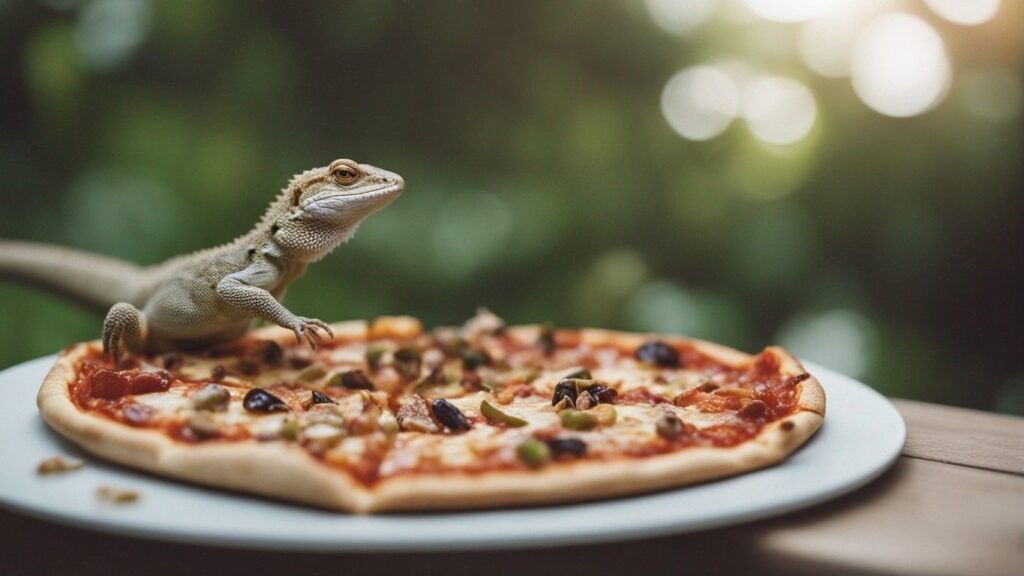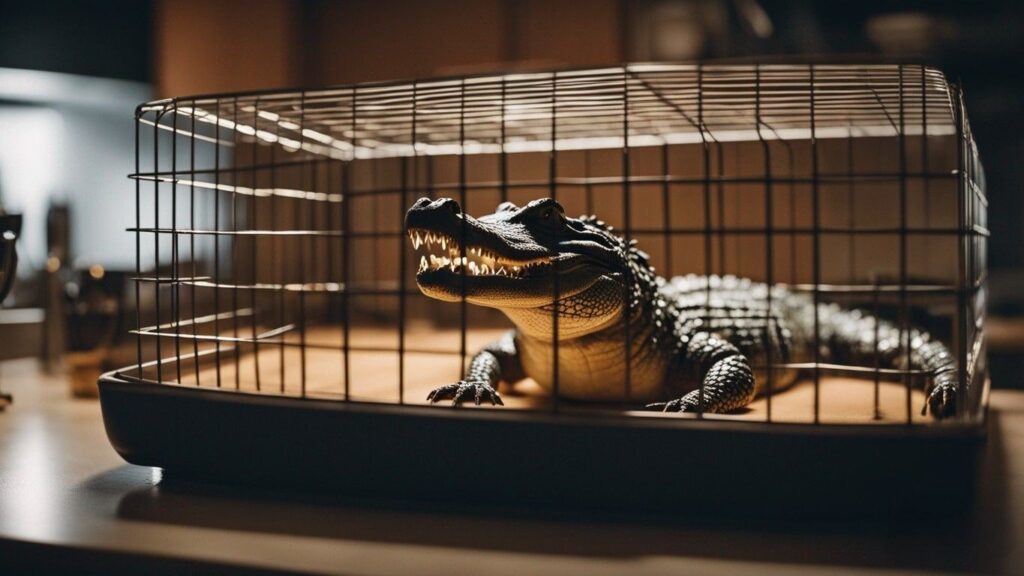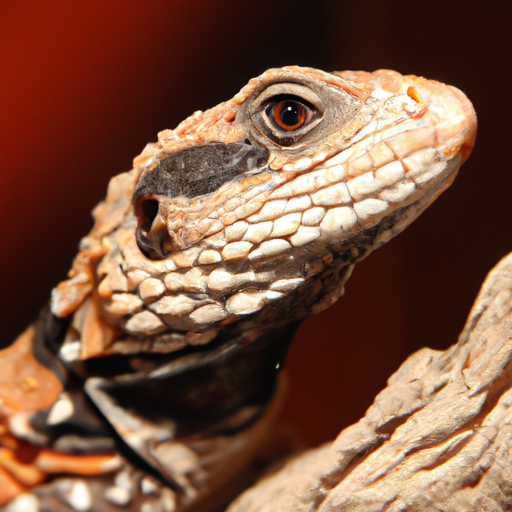So, you’ve finally decided to add a scaly new member to your family – a pet lizard. Exciting! But before you bring them home, it’s important to know what exactly they eat.
After all, you want to ensure they are nourished and happy in their new environment. In this article, we will explore the dietary preferences of pet lizards, from the common greens to the occasional insect delicacies.
Get ready to learn what makes a lizard’s mealtime truly satisfying!
Lizard Diet Basics
When it comes to feeding your pet lizard, it is important to understand the basics of their diet. Lizards are primarily carnivorous, which means they require a diet that consists mainly of meat. However, it is also essential to provide them with a variety of foods, including live prey, vegetables, fruits, and supplements to ensure they are receiving all the necessary nutrients for optimal health.
Variety of Foods
Offering a variety of foods is crucial to providing a well-rounded diet for your pet lizard. By including different food options, you not only provide a diverse range of nutrients but also cater to their natural inclination for variety. This encourages them to eat well and helps prevent boredom.
Live Prey
Live prey is an essential component of a lizard’s diet, as it mimics their natural hunting instincts. Feeding them live prey not only provides mental stimulation but also allows them to exercise through hunting and capturing their food. Some commonly offered live prey options include crickets, mealworms, dubia roaches, waxworms, silkworms, phoenix worms, locusts, grasshoppers, superworms, and black soldier fly larvae (BSFL). These diverse options offer different sizes, textures, and tastes, which can entice your lizard to eat and keep them healthy.
Supplements and Vitamins
While it is important to provide a varied diet, it might not always be possible to meet all of your lizard’s nutritional needs solely through the food they consume. This is where supplements and vitamins come into play. These additional nutrients ensure that your lizard is receiving all the essential vitamins and minerals they require for proper growth, bone development, and overall well-being.
Vegetables and Fruits
While lizards are primarily carnivorous, incorporating vegetables and fruits into their diet is still essential. These plant-based foods offer beneficial nutrients and can help provide hydration, fiber, and vitamins. However, it is important to note that not all vegetables and fruits are safe for your lizard to consume. Here are some safe options to consider:
Leafy Greens
Leafy greens such as kale, collard greens, mustard greens, dandelion greens, and spinach work well as part of a lizard’s diet. These greens are rich in nutrients like calcium and vitamin A, which are crucial for bone health and eye function.
Squash
Squash varieties like butternut squash and acorn squash can be a nutritious addition to your lizard’s diet. They are a good source of vitamins A and C, as well as fiber, which aids digestion.
Bell Peppers
Bell peppers are not only colorful but also packed with essential nutrients like vitamin C. They provide a crunchy texture and can be offered in various colors to add variety to your lizard’s meals.
Berries
Strawberries, blueberries, blackberries, and raspberries can be given to your lizard as an occasional treat. These sweet fruits are loaded with antioxidants and provide a refreshing change to their diet.
Melons
Melons such as watermelon, cantaloupe, and honeydew are hydrating and can offer a tasty option for your lizard. Ensure to remove the seeds and rind before offering them.
Mangoes
Mangoes are a tropical fruit that lizards often enjoy. They provide plenty of vitamin C and beta-carotene, which aids in boosting the immune system.
Papaya
Papaya is another fruit that lizards can consume. It is rich in fiber, antioxidants, and enzymes that promote digestion and overall gut health.
Protein Sources
Protein is an essential component of a lizard’s diet, as it is necessary for proper growth, muscle development, and overall health. While live prey forms a significant portion of their protein intake, there are other options available as well.
Crickets
Crickets are a commonly available and easily digestible protein source for lizards. They come in various sizes, making them suitable for lizards of different ages and sizes.
Mealworms
Mealworms are another type of live prey often fed to lizards. They are rich in protein, making them ideal for a lizard’s dietary needs. However, it is important to note that mealworms should not be the sole protein source, as they have a lower calcium-to-phosphorus ratio.
Dubia Roaches
Dubia roaches are becoming increasingly popular as a feeder insect for lizards. They are high in protein and have a favorable calcium-to-phosphorus ratio, making them a nutritious option.
Waxworms
Waxworms are another live feeder insect that can be offered to lizards as a protein source. They are high in fat, so they should be fed sparingly as an occasional treat rather than a staple food.
Silkworms
Silkworms are a nutritious option for lizards, especially for those that are picky eaters. They are high in protein and contain essential amino acids that are beneficial for your lizard’s health.
Phoenix Worms
Phoenix worms, also known as calciworms or black soldier fly larvae, are small and easy to digest. They are highly nutritious, containing calcium, good fats, and a balanced calcium-to-phosphorus ratio.
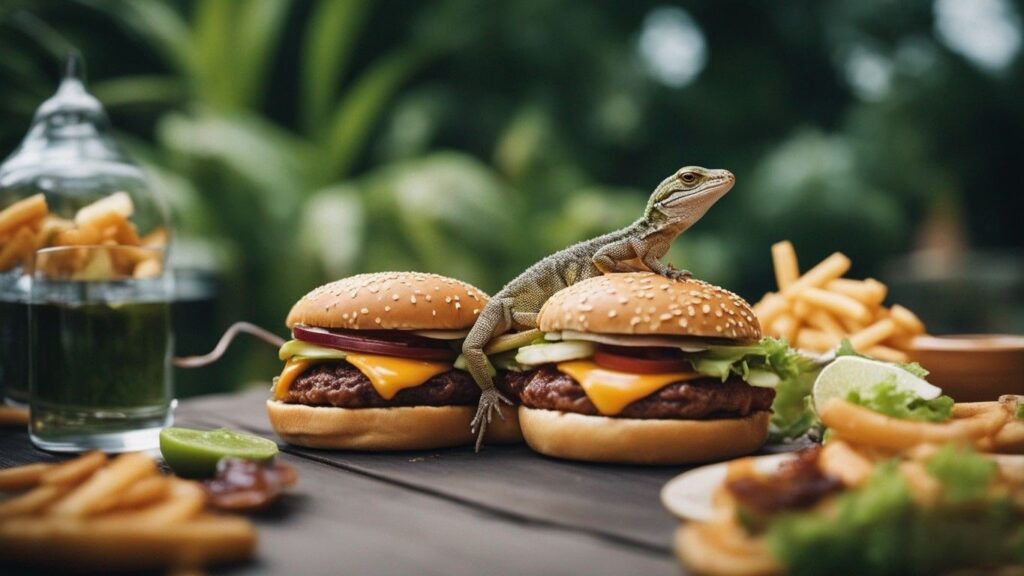
Other Insects
Apart from the commonly fed live prey, there are other insects that can be included in your lizard’s diet to provide variety and cater to different nutritional needs.
Locusts
Locusts are a larger type of insect that can be offered to adult lizards as a source of protein. They come in various sizes and provide a more substantial meal option.
Grasshoppers
Similar to locusts, grasshoppers offer a larger meal option for adult lizards. They can provide an exciting challenge for your lizard to catch and consume.
Superworms
Superworms are larger than mealworms and can be offered as a protein-rich snack for lizards. However, their tough exoskeleton may make them more suitable for larger or adult lizards.
Black Soldier Fly Larvae (BSFL)
BSFL are an excellent source of protein for lizards. They have a high calcium content, making them beneficial for bone health, especially in growing lizards.
Avoid Toxic Foods
While it is crucial to provide a varied diet for your pet lizard, there are certain foods that you should avoid, as they can be toxic or harmful to their health. Here are some foods to steer clear of:
Citrus Fruits
Citrus fruits like oranges, lemons, limes, and grapefruits should not be offered to lizards. Their high acidity can cause digestive issues and may irritate their gastrointestinal tract.
Avocado
Avocado is highly toxic to many animals, including lizards. It contains a substance called persin, which can lead to severe health issues if ingested by your pet lizard.
Onions
Onions, along with other members of the Allium family, including garlic and shallots, are toxic to lizards. They can cause anemia and damage to red blood cells.
Garlic
Garlic, like onions, should be avoided as it can lead to anemia and harm your lizard’s overall health.
Rhubarb
Rhubarb should not be given to lizards, as it contains oxalic acid, which can bind with calcium and lead to calcium deficiencies.
Tomato Leaves
While the ripe fruit of a tomato is safe for lizards, the leaves and stems contain a toxin called solanine, which can have harmful effects on their health.
Potatoes
Potatoes, both raw and cooked, are not suitable for lizards. They contain toxic substances known as glycoalkaloids, which may negatively impact their health.
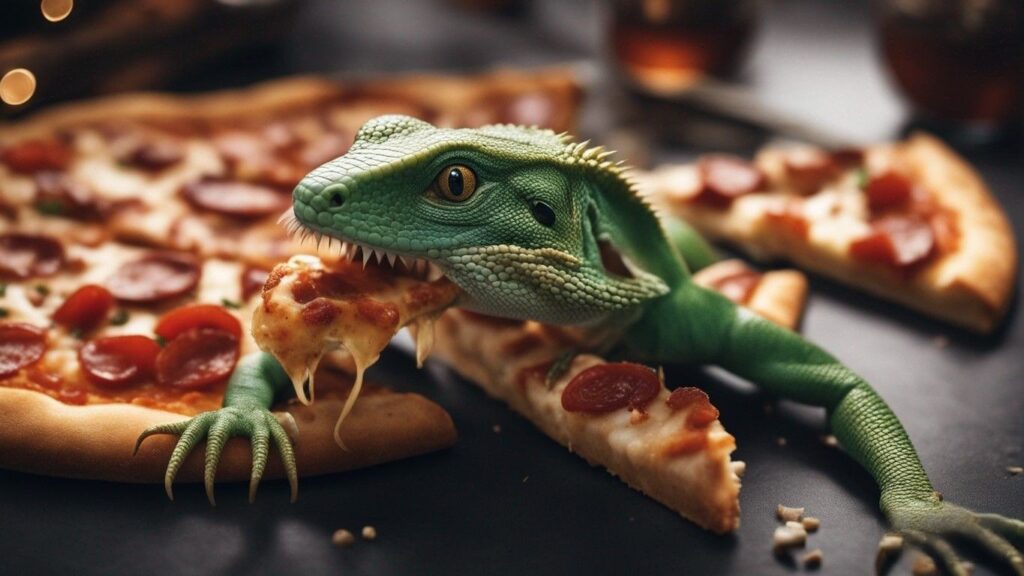
Hydration
Proper hydration is crucial for your lizard’s overall health and well-being. While lizards can obtain some moisture from the foods they consume, offering additional hydration methods is essential.
Water
Ensure your lizard always has access to fresh, clean water. Place a shallow dish of water in their enclosure to help them drink and stay hydrated.
Misting
Misting the enclosure with water can simulate rainfall and provide additional moisture for your lizard to drink and absorb through their skin.
Bathing
Offering your lizard a shallow dish of water to soak in can help them hydrate and maintain their skin’s moisture levels. Some lizards may enjoy bathing, while others may not show much interest, so observe their behavior and adjust accordingly.
Feeding Frequency
The frequency of feeding largely depends on the age and size of your lizard. Here are some general guidelines to consider:
Juvenile Lizards
Juvenile lizards require more frequent feedings due to their rapid growth. They should be offered food daily or every other day, ensuring their diet is appropriately balanced.
Adult Lizards
Adult lizards have a slower metabolism and typically require fewer feedings than juveniles. Feeding them every two to three days is usually sufficient, but monitor their eating habits and adjust the frequency as needed.
Gut Loading Prey
Gut loading is a crucial process that involves feeding the prey items nutritious foods before offering them to your lizard. This ensures that the prey is packed with essential nutrients and promotes the overall health of your lizard.
Importance of Gut Loading
Gut loading prey is vital because the nutritional quality of the prey directly affects the health of your lizard. By providing nutrient-rich foods to the prey, you enhance your lizard’s diet and provide them with the necessary vitamins and minerals they require.
Gut Loading Methods
To gut load prey items, offer them highly nutritious foods that are safe for your lizard to consume. Some commonly used gut loading foods include dark leafy greens, carrots, sweet potatoes, apples, and high-quality commercial gut loading diets. Ensure that the prey has access to these foods for at least 24 hours before feeding them to your lizard.
Supplements and Vitamins
To ensure your lizard is receiving all the necessary nutrients, supplements and vitamins play a crucial role in their diet. Here are some key supplements to consider:
Calcium
Calcium is paramount for your lizard’s bone health and overall well-being. Calcium supplements can be dusted onto the prey items or mixed with their food. It is important to use calcium supplements without added vitamin D3.
Vitamin D3
Vitamin D3 aids in the absorption of calcium and helps maintain proper calcium levels in your lizard. It is important to source vitamin D3 from natural sunlight or provide a UVB light source in their enclosure.
Multivitamin Supplements
Multivitamin supplements are beneficial for ensuring your lizard receives a broad range of vitamins and minerals. They can be added to their food periodically or as recommended by a veterinarian.
Observing Eating Habits
Monitoring your lizard’s eating habits is essential to ensure they are consuming an appropriate amount of food and maintaining a healthy diet. Here are some important things to keep an eye on:
Monitoring Appetite
Monitor your lizard’s appetite and ensure they are eating regularly. A decrease in appetite may indicate illness or stress, while an increase may suggest overfeeding or a lack of nutritional balance.
Signs of Overfeeding or Poor Diet
Observe your lizard for signs of overfeeding or a poor diet. Excessive weight gain, obesity, and changes in stool consistency can be indicators of overfeeding. Poor skin health, weakened bones, and issues with shedding may suggest a lack of proper nutrition.
Final Thoughts
By understanding and implementing the basics of a balanced lizard diet, you can ensure your pet reptile stays healthy and thrives.
Remember to provide a variety of foods, including live prey, vegetables, fruits, and the necessary supplements and vitamins.
Carefully observe their eating habits to detect any changes or potential issues, and always consult with a reptile veterinarian for specific dietary recommendations for your lizard species.
With proper care, your pet lizard will enjoy a nutritious and fulfilling diet that supports their overall well-being.


